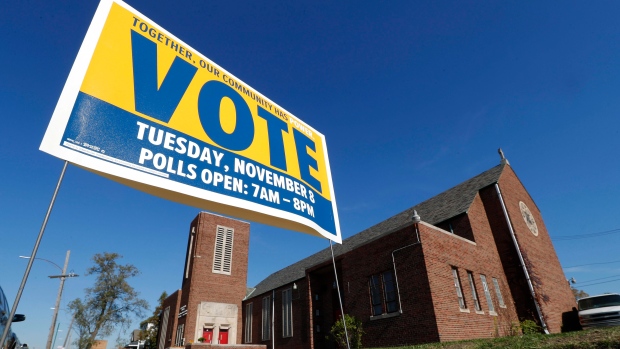Nov 7, 2016
Pattie Lovett-Reid: What average investors should do about the U.S. election

We are living in a period of heightened geopolitical risks across the globe. For investors this isn't something we have really had to deal almost since the Cold War, yet it was exemplified by events such as the Brexit vote and now the U.S presidential election.
The June 23 Brexit vote was the latest reminder that central banks will loosen their policies to fight unwanted risks and volatility. It has also become a stark reminder that the investing landscape is changing. We are in a very low-yield environment and the dividend yield on developed market equities exceeds that on government bonds.
Add to that we are seeing a number of companies increasing the cash returned to shareholders in the form of stock buybacks. The smart money seems to gravitate to companies where profits and cash flow continue to grow, as well as the dividend. In other words, there is something nice about being paid dividends to wait through periods of uncertainty.
FOCUS ON YOUR GOALS
With investor anxiety rising, what does the average investor do? I believe there are a couple of things we could all focus on.
It may seem counter intuitive, but given the exceptionally-stretched valuations of bonds, look for good quality stocks that pay a dividend. The fixed income market remains highly overvalued even as inflation shows some tentative signs of gradually returning to normal. Yet we are seeing investors move into the safe haven of U.S treasuries, the U.S dollar, gold, and Swiss and Japanese government bonds. There is no reason these shouldn't continue to be held as part of your asset allocation – just not your entire asset allocation.
Investing in this market even amid volatility is going to come to back to your time horizon and tolerance for risk. If you have 20 years to retirement and invest solely in bonds, your chances of meeting your retirement needs are unlikely to be achieved.
If you invest in quality stocks and measure your success over the long term versus the short term, you stand a chance of succeeding. It is tough but you need to ignore the noise. The focus shouldn't be on what the Fed will do, who is the next U.S. president, or whether how interest rates will move higher or lower. Your focus should be on what your liabilities will be and how can you cover those expenses. That is the conversation you should be having with your planner or advisor or even yourself, if you are a "do it yourself investor."
Don't solve for the wrong problem (for example, the U.S presidential election outcome). It’s interesting but should not be material to your portfolio in the long run.
Look at your current situation and understand your financial situation. Only then can you implement a financial plan that relentlessly focuses on your goals and only your goals.
Let others decide how they want to deal with the daily noise in the markets.






